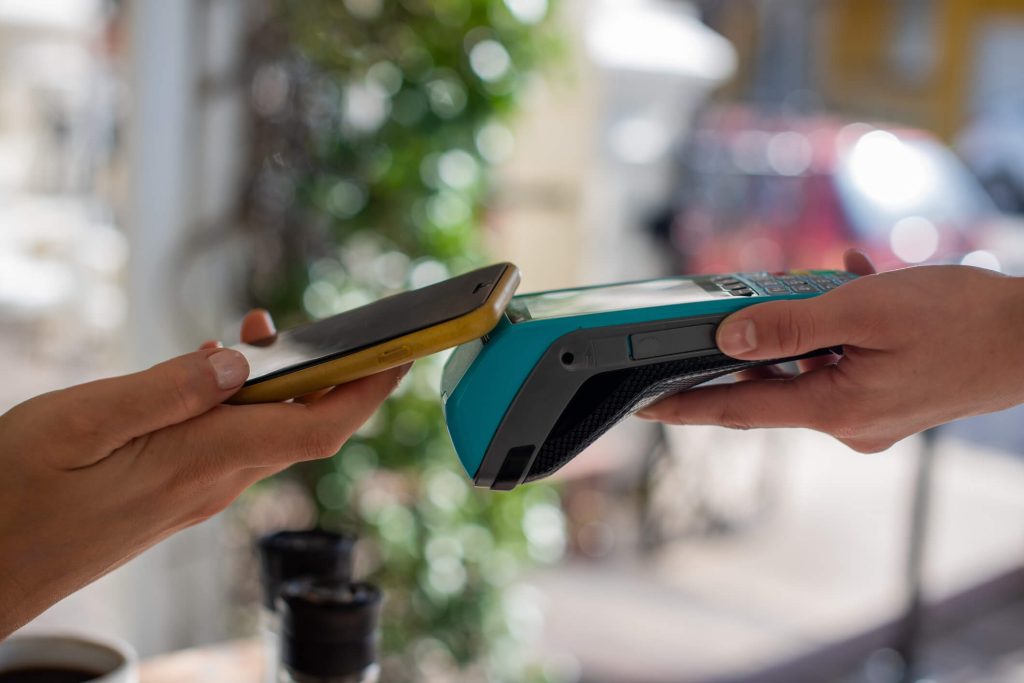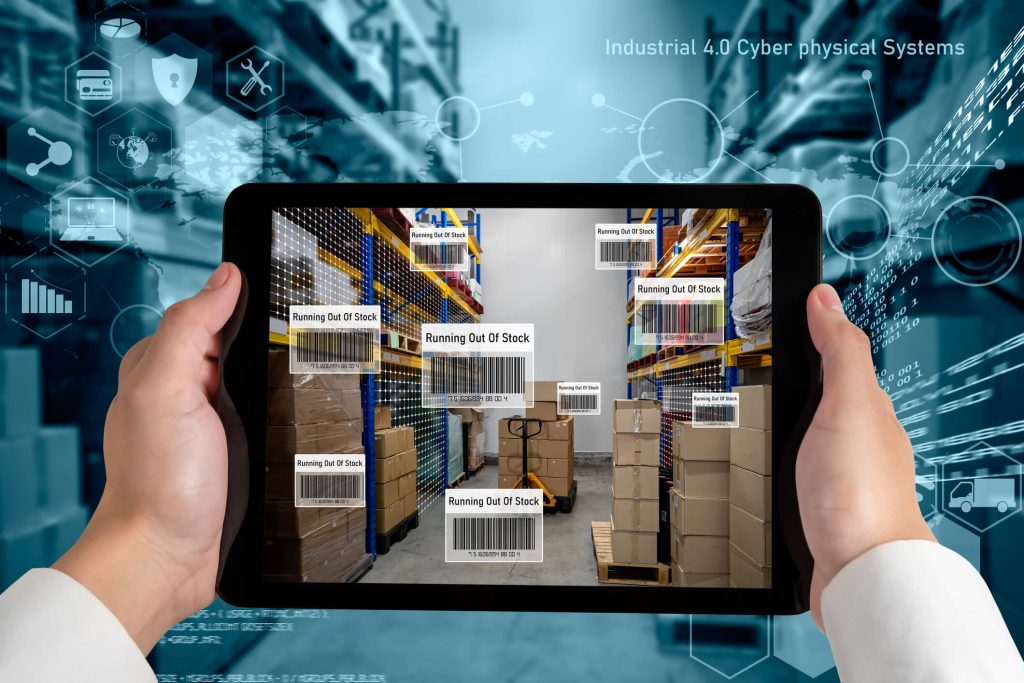The retail industry has undergone significant transformations in recent years, thanks to the rapid advancements in point-of-sale (POS) technology. From mobile POS solutions to artificial intelligence (AI) integration, these innovations have revolutionized the way businesses operate and interact with their customers. In this article, we will explore the latest trends in POS technology and their impact on the retail industry.
The Rise of Mobile POS Solutions: Empowering Businesses on the Go

Gone are the days when businesses were confined to traditional cash registers and stationary checkout counters. The rise of mobile POS solutions has empowered businesses to conduct transactions on the go, providing flexibility and convenience for both customers and retailers.
Mobile POS systems, typically operated on tablets or smartphones, allow businesses to process payments anywhere within their premises or even outside their physical stores. This flexibility enables retailers to provide a seamless shopping experience, whether it’s in a brick-and-mortar store, at a pop-up event, or during a home delivery.
The Advantages of Mobile POS Systems for Small Businesses
Small businesses, in particular, can greatly benefit from adopting mobile POS systems. These solutions offer cost-effective alternatives to traditional POS systems, eliminating the need for expensive hardware and software installations. With mobile POS, small businesses can easily manage their inventory, track sales, and process payments, all from a single device.
Furthermore, mobile POS systems provide real-time data and analytics, allowing small businesses to make informed decisions about their operations. By accessing sales reports and customer insights on the go, retailers can optimize their inventory, identify popular products, and tailor their marketing strategies accordingly.
Enhancing Customer Experience with Mobile POS Technology
In addition to empowering businesses, mobile POS technology also enhances the overall customer experience. With mobile devices in hand, sales associates can assist customers throughout their shopping journey, from product inquiries to checkout. This personalized approach not only improves customer satisfaction but also increases sales conversion rates.
Moreover, mobile POS systems enable businesses to offer various payment options, including contactless payments and digital wallets. This flexibility caters to the preferences of modern consumers who seek convenience and security in their transactions. By embracing mobile POS technology, retailers can stay ahead of the competition and meet the evolving needs of their customers.
How AI is Transforming POS Systems: From Automation to Personalization
Artificial intelligence (AI) has become a game-changer in various industries, and the retail sector is no exception. AI integration in POS systems has transformed the way businesses operate, from automating routine tasks to providing personalized recommendations for customers.
AI-Powered Inventory Management: Streamlining Operations and Reducing Costs

One of the key areas where AI is making a significant impact is inventory management. By analyzing historical sales data, AI algorithms can accurately predict demand patterns and optimize inventory levels. This automation not only streamlines operations but also reduces costs associated with overstocking or understocking.
AI-powered inventory management systems can also detect anomalies and identify potential stockouts or excess inventory in real-time. This proactive approach enables businesses to take immediate action, ensuring that popular products are always available and minimizing lost sales opportunities.
Leveraging AI for Customer Insights and Personalized Recommendations
AI algorithms can analyze vast amounts of customer data, including purchase history, browsing behavior, and demographic information, to generate personalized recommendations. By understanding individual preferences and shopping patterns, retailers can offer tailored product suggestions, increasing the likelihood of upselling and cross-selling.
Furthermore, AI-powered POS systems can provide real-time insights into customer behavior, allowing businesses to optimize their marketing strategies. By identifying trends and patterns, retailers can create targeted campaigns, offer personalized promotions, and enhance customer loyalty.
The Integration of Contactless Payments: A Safer and More Convenient Shopping Experience
The COVID-19 pandemic has accelerated the adoption of contactless payments, as consumers prioritize safety and hygiene in their shopping experiences. The integration of contactless payment options in POS systems has become a necessity for businesses to meet customer expectations and ensure a seamless checkout process.
The Benefits of Contactless Payments for Businesses and Consumers
Contactless payments offer numerous benefits for both businesses and consumers. For businesses, contactless payments reduce transaction times, leading to shorter queues and improved customer satisfaction. Moreover, these payment methods eliminate the need for physical cash handling, reducing the risk of theft and counterfeit currency.
For consumers, contactless payments provide a convenient and hygienic alternative to traditional payment methods. With a simple tap or wave of their card or smartphone, customers can complete transactions quickly and securely. This frictionless experience enhances customer satisfaction and encourages repeat business.
Overcoming Security Concerns in Contactless Payment Systems
While contactless payments offer convenience and speed, security concerns have been raised regarding the vulnerability of these systems to fraud and data breaches. However, it is important to note that contactless payment technologies, such as Near Field Communication (NFC), utilize encryption and tokenization to protect sensitive information.
Additionally, businesses can implement additional security measures, such as two-factor authentication and transaction limits, to mitigate the risks associated with contactless payments. By staying updated with the latest security protocols and educating customers about the safety of these payment methods, businesses can build trust and confidence in their contactless payment systems.
The Emergence of Cloud-Based POS Solutions: Scalability and Flexibility for Businesses
Cloud-based POS solutions have gained popularity in recent years due to their scalability, flexibility, and cost-effectiveness. These systems leverage cloud computing technology to store and process data, eliminating the need for on-premises servers and reducing maintenance costs.
The Advantages of Cloud-Based POS Systems for Multi-Location Businesses
For businesses with multiple locations, cloud-based POS systems offer centralized management and real-time data synchronization. This enables businesses to have a holistic view of their operations, streamline inventory management, and implement consistent pricing and promotions across all locations.
Furthermore, cloud-based POS systems provide scalability, allowing businesses to easily add or remove registers and locations as their needs evolve. This flexibility is particularly beneficial for seasonal businesses or those experiencing rapid growth.
Addressing Data Security and Privacy in Cloud-Based POS Systems
While cloud-based POS systems offer numerous advantages, data security and privacy concerns have been raised regarding the storage and transmission of sensitive customer information. However, reputable cloud service providers employ robust security measures, including encryption, firewalls, and regular data backups, to protect against unauthorized access and data breaches.
Businesses can also take additional precautions by implementing access controls, regularly updating software, and educating employees about data security best practices. By partnering with trusted cloud service providers and adhering to industry standards, businesses can ensure the security and privacy of their customers’ data.
The Role of Data Analytics in POS Technology: Unlocking Business Insights
Data analytics has become an essential tool for businesses to gain valuable insights and make informed decisions. In the context of POS technology, data analytics enables businesses to analyze sales data, customer behavior, and market trends, unlocking opportunities for growth and optimization.
Harnessing Data Analytics for Inventory Optimization and Demand Forecasting
By analyzing sales data and historical trends, businesses can optimize their inventory levels and improve demand forecasting. Data analytics can identify patterns and seasonality, enabling businesses to adjust their stock levels accordingly and avoid stockouts or excess inventory.
Furthermore, data analytics can provide insights into product performance, identifying top-selling items and underperforming products. This information allows businesses to make data-driven decisions about product assortment, pricing strategies, and promotional campaigns.
Utilizing Data Analytics to Enhance Customer Loyalty Programs
Data analytics can also play a crucial role in enhancing customer loyalty programs. By analyzing customer data, businesses can identify loyal customers, understand their preferences, and tailor personalized rewards and offers. This targeted approach not only increases customer retention but also drives customer engagement and advocacy.
Moreover, data analytics can provide insights into customer segmentation, allowing businesses to create targeted marketing campaigns and improve customer acquisition efforts. By understanding the demographics, preferences, and purchasing behaviors of different customer segments, businesses can optimize their marketing strategies and allocate resources effectively.
FAQs:
Q.1: What are the key benefits of using a mobile POS system?
Answer: Mobile POS systems offer flexibility, cost-effectiveness, real-time data access, and enhanced customer experience. They empower businesses to conduct transactions on the go and provide personalized assistance to customers.
Q.2: How can AI improve the efficiency of inventory management?
Answer: AI-powered inventory management systems can analyze historical sales data, predict demand patterns, and optimize inventory levels. This automation streamlines operations, reduces costs, and minimizes stockouts or excess inventory.
Q.3: Are contactless payments secure?
Answer: Contactless payment technologies utilize encryption and tokenization to protect sensitive information. Businesses can implement additional security measures, such as two-factor authentication, to enhance the security of contactless payment systems.
Q.4: What are the advantages of cloud-based POS systems over traditional ones?
Answer: Cloud-based POS systems offer scalability, flexibility, centralized management, and real-time data synchronization. They eliminate the need for on-premises servers, reduce maintenance costs, and provide a holistic view of business operations.
Q.5: How can data analytics help businesses make informed decisions?
Answer: Data analytics enables businesses to analyze sales data, customer behavior, and market trends, unlocking opportunities for growth and optimization. It provides insights into inventory optimization, demand forecasting, customer segmentation, and personalized marketing strategies.
Conclusion
The latest trends in POS technology have revolutionized the retail industry, empowering businesses to operate more efficiently, enhance customer experiences, and make data-driven decisions. From the rise of mobile POS solutions to the integration of AI, contactless payments, and cloud-based systems, these innovations have transformed the way businesses interact with their customers and manage their operations.

